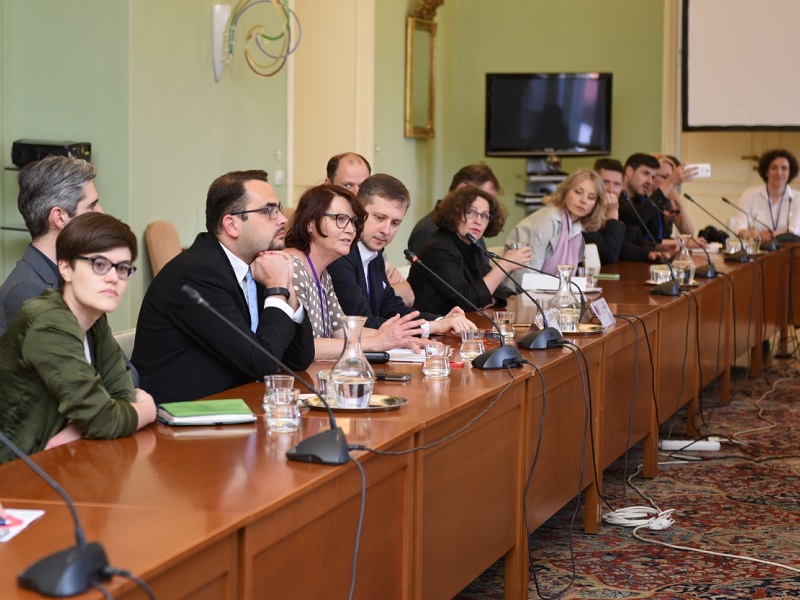
UNESCO CULTURE FOR DEVELOPMENT INDICATORS For Azerbaijan (Technical and Analytical Report)
UNESCO Culture for Development Indicators Suite (CDIS) consists of seven dimensions.
> Economy. Value added of Cultural and Creative Industries to the GDP of Azerbaijan amounts to 1%. The percentage of employment directly related to culture is 3.8%
> Education. In the first two years of secondary school in Azerbaijan, Fine Arts, Music, Literature (National Literature and World Literature) classes take up 13.0% of total curriculum hours.
> Governance. Azerbaijan Government's endeavours to join international conventions in the sphere of culture get a score of 0,96 on the international level and 0,89 score on the national level. Policy and institutional framework for culture receives 0,95/1. Distribution of cultural infrastructure scores 0.744/1. Civil society participation in cultural governance scores 0,81/1.
> Social Participation. Tolerance of other cultures is 60%. The level of Interpersonal Trust is only 15%. Freedom of Self-Determination scores 6,76/10.
> Gender. The overall indicative score of the country in regard to gaps in political representation, education, labour force, as well as legislative acts protecting the rights of women is 0.541 which is above medium level.
> Communication. In accordance with 2016 Press Index Report, the freedom of mass media and expression in Azerbaijan remains a weak point in international comparison.
> Heritage. The score for heritage sustainability compound of various indicators regarding the protection, safeguarding and promotion of heritage sustainability is high: 0.90/1. The overall score is the median value of the following sub-indices: Registrations and Inscriptions - 0.87/1, Protection, Safeguarding and Management - 0,85/1, and Transmission and Mobilisation of Support - 1/1.
The research was conducted and the report was composed according to the UNESCO CDIS Methodology by national experts Mr. Jahangir Selimkhanov and Mr. Fikret Mamedov, the national expert team was advised by the international cultural statistics expert Mr. Simon Ellis.




